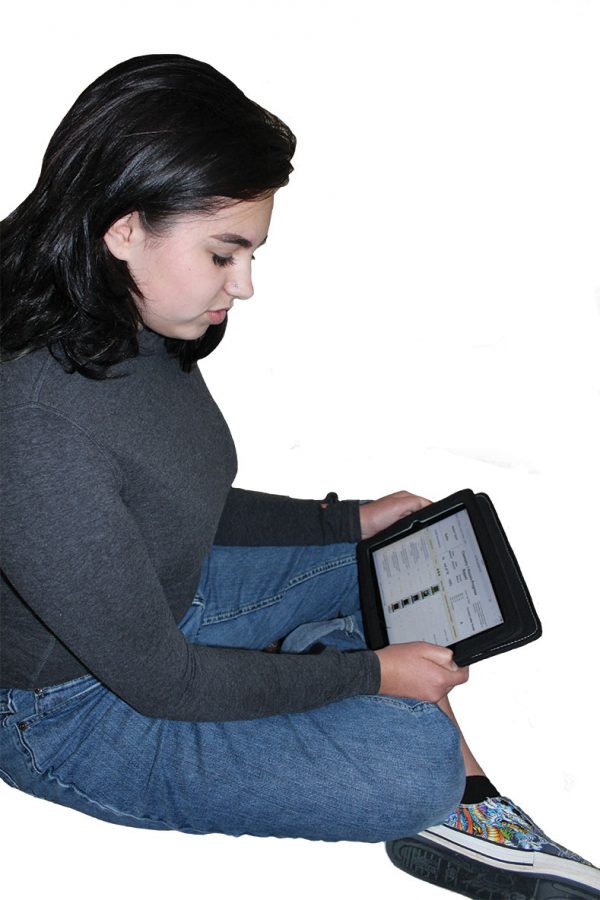Failure is impossible
Photo by M. Thomas
Sophomore Abbey Hackleman checks her chemistry grade (progress report). Her teacher, Bruick, allows the students to access a full record of grades through powerschool.
May 26, 2016
A teacher pulls out a stack of papers from her desk. They are the graded tests from last Friday. A student can barely remain seated, panicking over a percentage, planning his entire weekend around the numbers that he will soon see in front of him.
The fear that accompanies the finality of the traditional grading system is beginning to become compromised. Standards based grading (SBG) stands as the solution to ‘why-didn’t-I-study-that-night?-phobia.’
Chemistry teachers Ryan Bruick and Melissa Kikta were involved in the proposition and execution of SBG to Noblesville High School.
“I was working with Mr. Bruick and I remember him coming back from a conference about grading and being really excited about it,” Kikta said. “I started researching SBG and realized that it was such a great idea. It really matched my original thoughts on learning, grading, and student data tracking.”
Since standards-based-grading is new, many students and teachers equate their confusion towards SBG with dislike. Most chemistry teachers, many students, and even some foreign language teachers could offer help for those in need of a thorough SBG walk-through. Abbey Hackleman, a sophomore and student of Bruick, has seen her grades respond positively to the standards-based-grading system.
“How [SBG] works is students assess each goal after learning about it,” Hackleman said. “If you do not master the standard the first time [you assess] it than you can retake the assessment during academic lab. Standards-based-grading makes it easier for me too get 100 percent in the class.”
Standards-based-grading abandons the averaging of test and homework percentiles behind and instead turns homework into extra, ungraded practice and tests are never finalized. Specific standards and assessments can be retaken until the end of the semester.
“Normally, I get a ton of requests for extra credit or more points,” Kikta said. “Students aren’t really looking at what piece of the class they need to relearn, they are focused on the grade or total points. With SBG, students can identify areas that they don’t understand, relearn those activities, and then reassess. The grade improves because the student’s overall understanding of the material has improved.”
SBG is not about allowing students to work less or have less homework, it is about being able to make a student’s learning experience more individualized. Although SBG may seem like less of a workload, students actually have to adapt to a higher standard of self-discipline in order to get the best education possible for themselves.
“You actually have to know the material and can’t just wing it,” Hackleman said. “[SBG] would be difficult for people who need more of a push to get their work done and to know the material.”
Difficulty in transitioning from traditional grading has not been confined to students, but especially teachers as well. Changing to SBG involves disregarding a way of life and learning that has been ingrained in the minds of children, their parents, and generations on.
“It has changed the way we look at understanding and what the grade means,” Kikta said. “[I have learned] that it is ok to fail. I don’t like failing and trying something new is scary. Regardless, I would say this year is a great success. I love how directed and focused the course is. Students are talking about relearning and what individual aspects of the class they need work on. It is music to my ears.”



